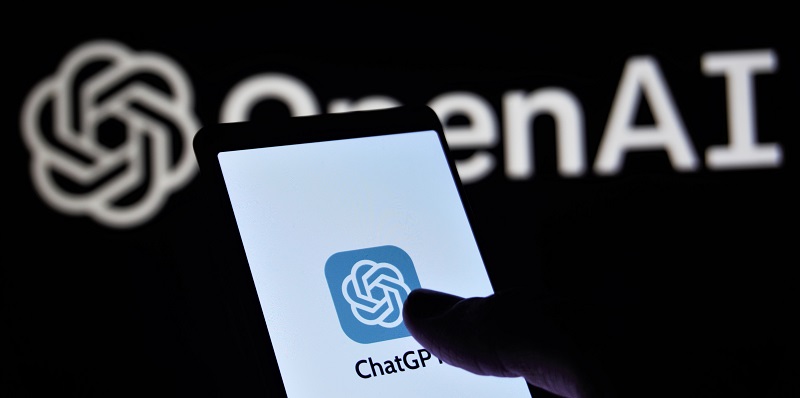OpenAI, a leading organization in artificial intelligence research and development, is well-known for its continuous efforts to improve its flagship generative AI chatbot product, ChatGPT. In line with their commitment to enhancing user experience, OpenAI has announced a set of updates for ChatGPT that aim to further elevate its capabilities and usability. These new features promise to streamline interactions and make conversations with ChatGPT even more engaging.
OpenAI has introduced several noteworthy features in the latest ChatGPT update. These features have been designed to facilitate seamless conversations and assist users in generating high-quality responses. Among the new additions, example prompts, suggested replies, and follow-up questions stand out as key enhancements.
Example prompts offer users a starting point to shape the conversation and provide better context for generating responses. This feature allows users to provide specific instructions or guidelines for ChatGPT to follow, improving the accuracy and relevance of the generated content. By giving users more control over the conversation, OpenAI aims to empower them to achieve their desired outcomes.
Suggested replies are another valuable addition that can significantly reduce user fatigue. ChatGPT now presents a list of suggested responses based on the ongoing conversation, enabling users to select the most suitable option with a single click. This feature not only saves time but also ensures a smoother flow of conversation, particularly in lengthy or complex discussions.
Additionally, the introduction of follow-up questions enables users to delve deeper into topics they find interesting or explore different aspects of the conversation. This feature enhances interactivity and allows users to steer the direction of the conversation, making it more dynamic and engaging.
The importance of suggested replies is that they can help streamline communication and save time by offering pre-written responses based on the context of the message. This feature can assist users in crafting well-phrased and appropriate replies, ensuring efficient and effective communication.
One of the most notable features among the ChatGPT updates is suggested replies. This feature brings immense value to users by minimizing the cognitive load associated with generating every response from scratch. By presenting pre-constructed suggestions, ChatGPT reduces the decision-making time and mental effort required from users, making the conversation more effortless and enjoyable. This enhancement further exemplifies OpenAI’s commitment to user-centric design and improving conversational efficiency.
To cater to their ChatGPT Plus subscribers, OpenAI has introduced a default GPT-4 setting. This means that ChatGPT Plus users will have the privilege of accessing the advanced capabilities of GPT-4 by default. This upgrade likely brings enhanced language understanding, improved response quality, and a more human-like conversational experience, raising the bar for AI-enabled interactions.
The introduction of GPT-4 as the default setting aligns with OpenAI’s pursuit of delivering the most cutting-edge AI technology to its users. While there may be concerns about relying on AI models by default and potential ramifications, OpenAI assures users that thorough testing and ongoing development are prioritized to maintain a balance between innovation and responsible AI usage.
OpenAI has also invested in improving the functionality of the OpenAI Code Interpreter plugin used in conjunction with ChatGPT. Users can now enjoy the convenience of uploading multiple files simultaneously, making it easier to share code snippets, data files, or any relevant resources during a conversation. This improvement streamlines collaboration, showcases OpenAI’s commitment to providing more seamless user experiences, and enhances the practicality of ChatGPT for various professional use cases.
The initial user reaction to the ChatGPT updates has been mixed. Many users have lauded the implementation of new features, especially the default GPT-4 setting and extended login periods. This positive feedback underscores the value that OpenAI’s continuous updates bring to ChatGPT users, establishing OpenAI as a frontrunner in the AI chatbot domain.
However, it is important to note that some users have expressed a desire for a reduction in ChatGPT’s tendency to apologize frequently. OpenAI acknowledges this concern and is actively working to address it. Balancing the fine line between maintaining politeness and minimizing unnecessary apologies is an essential aspect of refining ChatGPT’s conversational style.
While the ChatGPT updates showcase OpenAI’s commitment to user feedback and iterative development, areas for improvement have been identified. User input is invaluable in identifying pain points and refining the system further. OpenAI remains dedicated to continuous improvement, addressing user concerns, and prioritizing user satisfaction.
OpenAI’s introduction of new features and enhancements for its ChatGPT product demonstrates its steadfast commitment to enhancing user experience and increasing usability. The updates, including example prompts, suggested replies, and follow-up questions, empower users to have more meaningful and engaging conversations with ChatGPT. The addition of default GPT-4 for ChatGPT Plus subscribers signifies OpenAI’s push towards more advanced AI models. Furthermore, the improved file upload support through the OpenAI Code Interpreter plugin enhances collaboration and practicality.
Though the initial reaction from users has been mixed, OpenAI actively listens to feedback, both positive and constructive, to refine and optimize ChatGPT. By addressing concerns raised by users, OpenAI aims to ensure that ChatGPT maintains a polite and helpful conversational style without excessive apologies. OpenAI’s ongoing commitment to developing ChatGPT promises to push the boundaries of AI capabilities, empowering users to have more natural and engaging interactions with the AI-powered chatbot.

